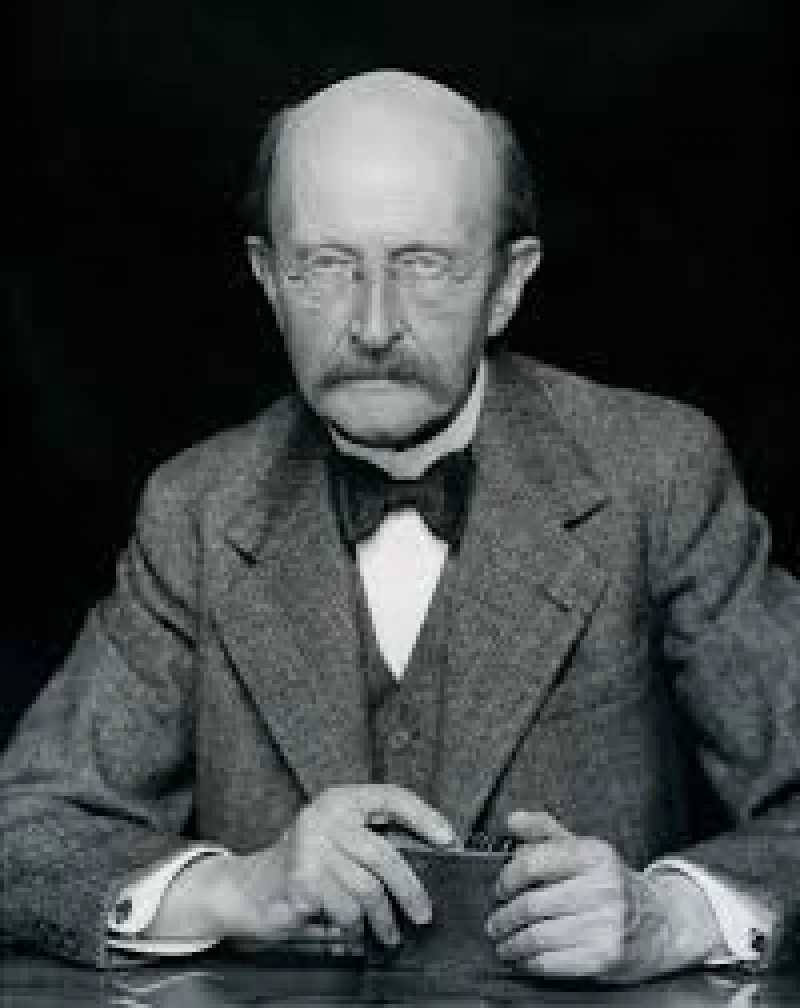Short Summary
Max Planck was a pioneering German physicist whose work in theoretical physics laid the groundwork for quantum theory, earning him the Nobel Prize in Physics in 1918. His most notable contribution, the Planck constant, revolutionized the understanding of atomic and subatomic processes. Planck's work marked a paradigm shift in physics, influencing generations of scientists and paving the way for future discoveries in quantum mechanics.
Early Life & Education
Max Planck was born on April 23, 1858, in Kiel, Germany, into a family of intellectuals. His father was a law professor, which fostered an environment that valued education and scholarly pursuits. Planck showed an early aptitude for music and science, eventually choosing to pursue physics. He studied at the University of Munich and later at the University of Berlin, where he was influenced by prominent physicists such as Hermann von Helmholtz and Gustav Kirchhoff. This strong academic foundation set the stage for his future contributions to physics.
Career Highlights
Planck began his academic career as a professor at the University of Kiel and later at the University of Berlin. His most significant work came in 1900 when he introduced the quantum hypothesis, suggesting that energy is quantized, which was a revolutionary idea at the time. This led to the formulation of Planck's law of black-body radiation and the introduction of the Planck constant. His work provided critical insights into the nature of energy and matter, influencing the development of quantum mechanics and earning him the Nobel Prize in Physics in 1918.
Major Achievements
- Introduced the concept of quantized energy levels, laying the foundation for quantum mechanics.
- Formulated Planck's law of black-body radiation, which resolved discrepancies in classical physics.
- Received the Nobel Prize in Physics in 1918 for his discovery of energy quanta.
- Served as the president of the Kaiser Wilhelm Society, contributing to scientific advancement in Germany.
- Played a pivotal role in the development of theoretical physics in the early 20th century.
Famous Quotes
- "A scientific truth does not triumph by convincing its opponents but rather because its opponents eventually die."
- "Science cannot solve the ultimate mystery of nature, and that is because, in the last analysis, we ourselves are part of the mystery that we are trying to solve."
Interesting Facts
- Planck's introduction of the quantum hypothesis was initially met with skepticism by his peers.
- He was a skilled pianist, and music played a significant role in his life.
- Despite his groundbreaking work, Planck remained a deeply religious man, maintaining that science and religion could coexist.
- Planck was a vocal opponent of the Nazi regime and supported Jewish scientists during World War II.
- The Planck satellite, launched in 2009, was named in his honor to study cosmic microwave background radiation.
Legacy / Influence
Max Planck's contributions to physics fundamentally changed the understanding of atomic and subatomic processes. His introduction of quantum theory revolutionized scientific thought, influencing the development of modern physics. Planck's work paved the way for future innovations in quantum mechanics, impacting fields such as chemistry, material science, and technology. His legacy endures as one of the founding fathers of quantum physics.
FAQ
Q: Why is Max Planck famous?
A: Max Planck is famous for his groundbreaking work in quantum theory, particularly for introducing the concept of energy quanta, which revolutionized physics.
Q: What is the Planck constant?
A: The Planck constant is a fundamental constant that relates the energy of a photon to its frequency, playing a crucial role in quantum mechanics.
Q: What did Max Planck win the Nobel Prize for?
A: He won the Nobel Prize in Physics in 1918 for his discovery of energy quanta, which laid the foundation for quantum theory.











